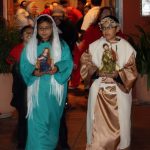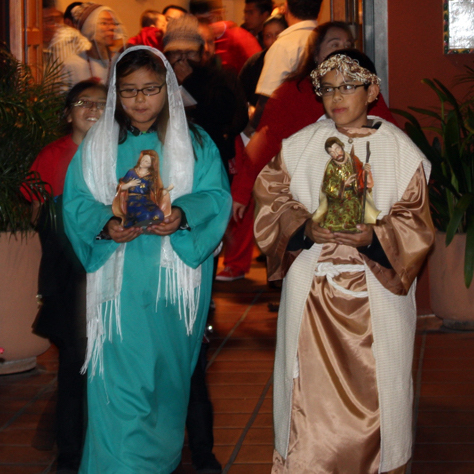 While much attention at this General Convention has focused on the possibility of revising the 1979 Book of Common Prayer, other resolutions related to liturgical revision are working their way through Committee 12, the legislative committee on Prayer Book, Liturgy and Music.
While much attention at this General Convention has focused on the possibility of revising the 1979 Book of Common Prayer, other resolutions related to liturgical revision are working their way through Committee 12, the legislative committee on Prayer Book, Liturgy and Music.
Resolution A064 proposes to authorize the Book of Occasional Services 2018, while Resolution A065, which originally proposed authorizing Lesser Feasts and Fasts 2018 as the church’s new calendar of commemorations, now sends the document back to the Standing Commission on Liturgy and Music (SCLM) for further revisions.
A new resolution (A216), drafted during convention by the committee, would remove “all non-Biblical feasts of optional observance.”
Two other resolutions drafted by the committee during convention would authorize parts of the proposed Book of Occasional Services (A218) while referring others parts back to the SCLM for additional work (A219).
The fate of Resolutions A066, which proposes including Thurgood Marshall, Pauli Murray, and Florence Li Tim-Oi (who are on calendars once authorized for trial use) in Lesser Feasts and Fasts 2018, and A067, regarding the addition of fast days to the church calendar, are in limbo as the convention determines whether to authorize Lesser Feasts and Fasts.
According to Deputy Devon Anderson of the Episcopal Church in Minnesota, who chaired the SCLM during this triennium, revising the Book of Occasional Services was first called for by General Convention in 2012. Then, at GC 2015, a proposed table of contents for a revised Book of Occasional Services passed without funding. However, the SCLM secured a mid-triennium grant and grant from the presiding bishop to fund this work. With that funding, the SCLM was able to hire a project manager, writers, and editors and to support the work of two subcommittees, Anderson said.
Since “the first year [of the triennium] was spent securing funding,” the proposed revision is “the best we could come up with in two years,” Anderson said. However, if the committee receiving the proposed revision determines that this revision is “not ready for primetime,” Anderson said she hopes “that the committee sends it back with very specific instructions for further work” and that funding is received to do that work.
“The volume presented to us responded to a call for liturgies in non-Anglo settings, particularly Hispanic (e.g. Las Posadas, Dia de Los Muertos),” said Deputy Susan Anslow Williams of Michigan, chair of the House of Deputies legislative committee on Prayer Book, Liturgy, and Music. “Missing are liturgies from other cultures in our church, and work remains to be done. This is acknowledged in the Blue Book report. Whether this convention feels the presented text BOS (Book of Occasional Services) 2018 is ready for authorized use will be the question.”
The Book of Occasional Services (BOS) works alongside the Book of Common Prayer, Anslow Williams said. “Since the specific purpose of BOS is to supply liturgies that don’t receive a lot of use, but still reflect the ethos and language of the BCP, it’s not meant as an end-run around prayer book revision. Anything major that should be in a future BCP, should instead become an Enriching Our Worship volume or other authorized-for-trial-use text.”
Just as the proposed BOS was responding to a desire for greater cultural diversity in the church’s liturgical offerings, so the proposed Lesser Feasts and Fasts 2018 was responding to a desire for greater diversity in the church’s calendar of commemorations. “It has been wonderful for The Episcopal Church to discover and remember voices in our tradition from a much fuller representation of God’s people,” said Deputy Samuel Candler of Atlanta. “That discovery can only be more valuable for us.”
The Blue Book report of the SCLM’s calendar committee includes pie charts (found on pages 166-169) that illustrate vividly that the proposed calendar includes far more women, people of color and members of the laity than Lesser Feasts and Fasts 2006 and Holy Women, Holy Men. “The pie charts are very telling,” said Deputy Debra Bennett of Ohio, a member of the legislative committee, because they “bring to our awareness the imbalance that had been in the Lesser Feasts and Fasts.
“Showing the percentages and the pie chart of the ethnic groups included reminds us that we haven’t really been privileged to honor these lives and ministries that have contributed to our journey.”
Not all of the SCLM’s decision have insured greater diversity. Thurgood Marshall, Pauli Murray and Florence Li Tim-Oi were all included on previous calendars adapted for trial use since Lesser Feasts and Fasts 2006. However, the SCLM’s sub-committee on the calendar decided that because none of the three has been dead for 50 years, a rule of thumb in adding individuals to the calendar, they needed to be re-approved for inclusion. Resolution A066 would accomplish that but has not yet been taken up by the committee.
As the resolution notes, Marshall, Murray and Tim-Oi “are already very widely commemorated within the Episcopal Church.”
Resolution A067 proposes that the SCLM be directed “to research the possibility of adding additional fast days … and to bring any recommendations to the 80th General Convention in 2021.”
“The SCLM intends to continue revising LFF (Lesser Feasts and Fasts) and the calendar and asks this convention not to mess with what they have given us,” Anslow Williams said. “However, Committee 12 (the legislative committee on Prayer Book, Liturgy and Music) has received seven requests (and counting) for additions. Our committee will need to grapple with those in light of the SCLM’s promised continued work.”
photo of Las Pasadas at St. Athanasius Church, Diocese of Los Angeles: Pat McCaughan, Episcopal News Service
